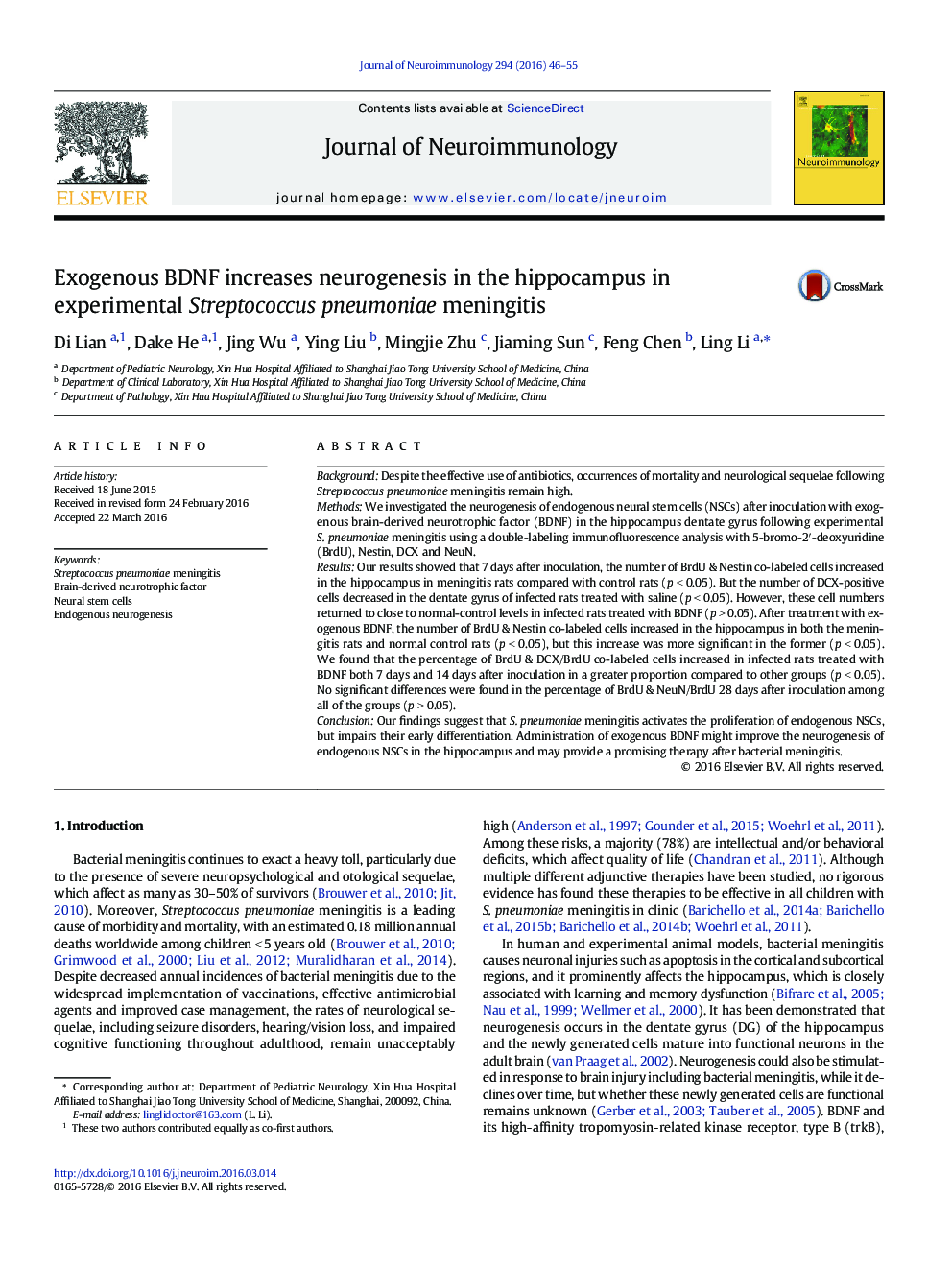| کد مقاله | کد نشریه | سال انتشار | مقاله انگلیسی | نسخه تمام متن |
|---|---|---|---|---|
| 6020001 | 1580380 | 2016 | 10 صفحه PDF | دانلود رایگان |

- Bacterial meningitis could activate proliferation of endogenous NSCs in hippocampus.
- Bacterial meningitis also impairs early differentiation of endogenous NSCs at the same time.
- Exogenous BDNF could improve neurogenesis of endogenous NSCs in the DG of hippocampus.
- BDNF treatment might be a promising therapy following bacterial meningitis.
BackgroundDespite the effective use of antibiotics, occurrences of mortality and neurological sequelae following Streptococcus pneumoniae meningitis remain high.MethodsWe investigated the neurogenesis of endogenous neural stem cells (NSCs) after inoculation with exogenous brain-derived neurotrophic factor (BDNF) in the hippocampus dentate gyrus following experimental S. pneumoniae meningitis using a double-labeling immunofluorescence analysis with 5-bromo-2â²-deoxyuridine (BrdU), Nestin, DCX and NeuN.ResultsOur results showed that 7 days after inoculation, the number of BrdU & Nestin co-labeled cells increased in the hippocampus in meningitis rats compared with control rats (p < 0.05). But the number of DCX-positive cells decreased in the dentate gyrus of infected rats treated with saline (p < 0.05). However, these cell numbers returned to close to normal-control levels in infected rats treated with BDNF (p > 0.05). After treatment with exogenous BDNF, the number of BrdU & Nestin co-labeled cells increased in the hippocampus in both the meningitis rats and normal control rats (p < 0.05), but this increase was more significant in the former (p < 0.05). We found that the percentage of BrdU & DCX/BrdU co-labeled cells increased in infected rats treated with BDNF both 7 days and 14 days after inoculation in a greater proportion compared to other groups (p < 0.05). No significant differences were found in the percentage of BrdU & NeuN/BrdU 28 days after inoculation among all of the groups (p > 0.05).ConclusionOur findings suggest that S. pneumoniae meningitis activates the proliferation of endogenous NSCs, but impairs their early differentiation. Administration of exogenous BDNF might improve the neurogenesis of endogenous NSCs in the hippocampus and may provide a promising therapy after bacterial meningitis.
Journal: Journal of Neuroimmunology - Volume 294, 15 May 2016, Pages 46-55